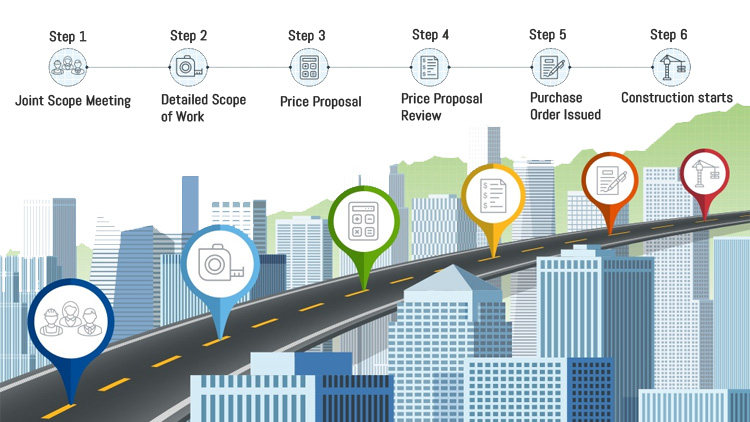One of the most needed processes for a proper construction plan and execution is construction procurement. Something is essential for the entire construction projects. To fully understand construction procurement, one must go over the definition of procurement itself, what construction procurement is, and what procurement management is.
Understanding all of these factors will lead to a full understanding of construction procurement. Something that is heavily needed, discussed, and utilized in the construction industry.
What is Procurement?
As noted, to understand construction procurement, it’s important to know what the actual definition of procurement is beforehand. It’s defined as the action of obtaining or procuring something, which means to obtain information surrounding something simply.
People can often get jobs in procurement. For example, a company typically has a procurement clerk who will take purchase requests from different departments and get price quotes from different suppliers. Besides that, they might schedule deliveries and discuss shortages and missed deliveries.
This definition of a procurement clerk isn’t far off on what construction procurement is. Down below is more information pertaining to construction procurement.
What is Construction Procurement?
Since procurement is the process behind purchasing goods and services, construction procurement is what one might expect. It’s something that often has a ton of routes that can be done with it. The main two being the design and construction of a building.
The route is often selected so that it’ll fit into the long term goals and objectives of the client and construction company. The main factors include speed, cost, quality, risk, ownership, and financing. All of which are looked at as factors that can be procured or purchased to help achieve a certain goal within each factor.
Procurement routes are usually dealt with by a normal contract, a single-stage design and build, a two-stage design and build, or a management contract. All of which have different factors into why a person might select a specific piece.
A traditional contract is the most popular procurement routes due to its simplicity and easy to understand nature among a contractor and their client.
What is Procurement Management?
Procurement management is exactly what a person might expect when they understand what construction procurement is.
Procurement management is the ability to acquire goods and services from another organization or firm. This is important for a construction company to do because it can save them money. Besides money, it has a ton of positive factors behind it and is the reason why a construction company will look into procurement management.
Below is a list of a few points that define what procurement management does for a construction company.
Goods and Service Decision
Not all of the goods and services of a construction company to be sourced from the outside. This is why it’s important to note what a company should buy from the outside and what they shouldn’t. Doing so by listing the pros and cons of each step. Determining what is cost-effective and what is necessary is what plays into the role of this process.
After this, a company will look into different suppliers. Comparing prices and quality between each supplier and what they should consider taking. Research plays an important role in this step since a company will never want to work with someone with a bad or poor reputation.
The Ability to Call for Bids
Once a company has several companies lined up for a potential deal, the procurement process calls for that company to ask for bids. Meaning they can hear what each supplier proposes; which will help them choose the right supplier for them.
However, as noted, a company doesn’t necessarily pick the cheapest option. Besides the cost, things like reputation, company relationship, and quality play just as an important role.
Evaluation/Selection
The last part of the procurement process is evaluating and selecting. Essentially going over everything that can be selected and determining which is the best outcome. This is a very important step in the process since it is vital for the entire process to be done well.
Evaluating isn’t just about looking at each individual supplier to determine what is perfect, but what to further evaluate going further. Something may come up with another opportunity that presents itself as a better option. This should always be considered during the process.
Conclusion
In simple terms, the procurement process is an important aspect of construction. Deciding between specific design, material, and construction responsibility. Factors are the most important aspects of construction in general.
All of which should be looked at closely when determining the procurement process for a construction company.



